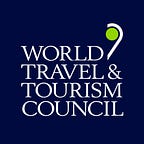Eight things we learnt at WTTC’s Global Summit 2019
Former Presidents, Government Ministers, CEOs and Tourism Policymakers came together at the annual WTTC Global Summit in Seville earlier this month (April 2019) to discuss the biggest trends and toughest challenges in Travel & Tourism.
Under the theme ‘Changemakers — crafting the future vision of Travel & Tourism’ Hon. Pedro Sánchez, President of Spain; H.E. Margaret Kenyatta, First Lady of Kenya; H.E. Maitha Al Mahrouqi, Oman’s Undersecretary of Tourism; Juan Manuel Moreno, Andalucian President, business leaders from Expedia Group, Uber, Tui, Hilton, Thomas Cook and many others discussed topics as diverse as AI’s impact on jobs, the influence of Chinese consumers, biometrics and travel security, combatting climate change and promoting sustainable growth.Here are this year’s eight, out of many, key highlights:
1. An already highly popular destination, Spain sees innovation as the way to grow.
Dispersing tourists more widely with a new focus on rural tourism, diversifying product to attract visitors with higher spending power and using big data to help stakeholders plan and innovate are key focuses. Spain already has a larger fibre optic network than England, France and Germany combined, the world’s second biggest high speed train network after China and its internal air connectivity is also exceptionally high.
2. Biometric ID works, now it’s about reassuring people about privacy.
The US Customs and Border Protection Agency’s (CBP) match rate for Biometric ID scanning is 98% and it typically takes just one second! What users don’t appreciate yet is that privacy is built into the tech by design. Kevin McAleenan, Commissioner CBP, explained that only they have access to the biometric data. It’s not shared with the airports, airlines and cruise operators during the verification process. CBP simply uploads templates of photos online for a few seconds for verification and they are then deleted.
3. Human trafficking is present virtually everywhere.
This illicit activity affects 30 million victims worldwide and it’s not just a developing world problem. Furthermore 25% of victims are children and 19% of victims are trafficked for sexual purposes. Fundamentally, human trafficking relies on travel networks to operate. So, the Tourism & Travel industry is uniquely positioned to stamp it out. At the Global Summit, WTTC announced the first industry-wide initiative to assert zero tolerance and share best practice.
4. The smartphone era is just the appetiser for the tech revolution.
Talking about 5G technology which is just a few years away, Telefónica Chairman José María Álvarez-Pallete explained that it will be 100 times faster and 1000 times more capable. Sensors will be everywhere. Everything will generate data, and this will drive a huge leap forward in cognitive intelligence. For example, we already know where and how people are coming to a destination, we will soon also be able to infer why, anticipating their needs and offering genuinely personalised experiences — at scale.
5. We need to think more creatively about Chinese travellers.
The days of using big macro trends are over. Chinese travellers are far more sophisticated, more demanding and more diverse — particularly the Millennials. While many love to shop, others are far more interested in nature; although many prefer packed itineraries and group travel, some increasingly like to travel independently or in smaller niche interest groups and want time to relax. The best way to understand the Chinese market? Visit China.
6. Older travellers have something in short supply: time affluence.
Many people are talking about China and Millennials driving growth in the Travel sector. But the over 65 age group is growing exponentially and these people have the time and the money. In the US alone, this group will have 2.5 trillion hours of time to fill over the next 20 years. And they want experiences, not more material ‘stuff’. The number one thing they want to do is travel.
7. Accessible tourism is a big opportunity.
Alberto Durán, Executive Vice President, ONCE, explained that when disabled people travel they typically have to spend around 30% more than non-disabled counterparts because not all options are open to them. But often the changes needed to help them are relatively simple and they add value for everyone. For example, ramps aren’t just for wheelchairs, they are useful for suitcases with wheels too. Those businesses that adapt better will reap the benefits because guests with a disability have very high levels of loyalty. The long term value of a disabled customer is significantly higher than the norm.
8. Climate change is both a big problem and a huge opportunity.
The idea that you can’t have economic growth and tackle climate change too is a false dilemma. The new climate economy could create up to three million jobs. The key things we need to do are: change land use (deforestation and bad agricultural practices create 20% of emissions); change energy sources to renewable energy (the tech is already there to do this); create smarter cities by reducing commutes, retrofitting buildings to save energy and reducing food waste (around 30% of global food production is wasted, creating 8% of emissions).
Many of the sessions from the Global Summit 2019 can be viewed in full on the WTTC website.
